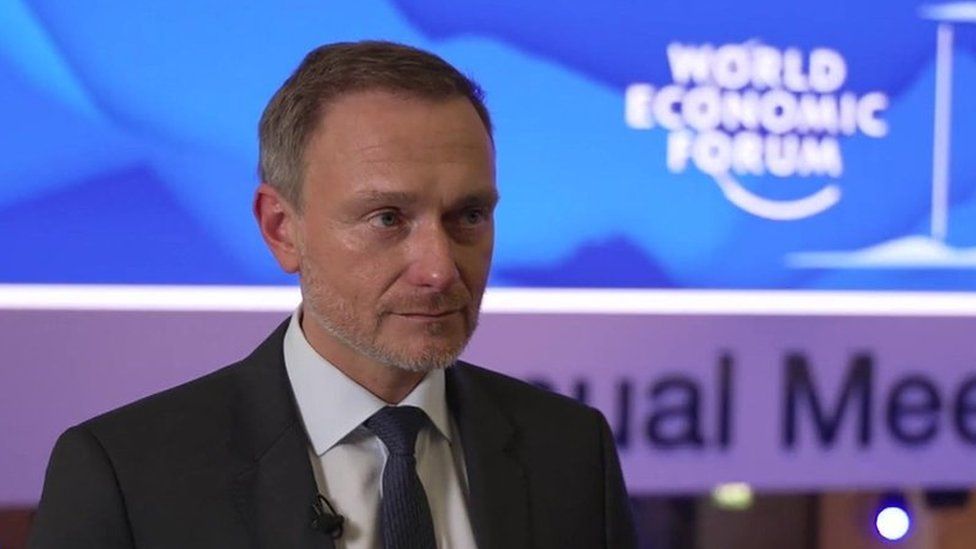ARTICLE AD BOX

Germany's Finance Minister, Christian Lindner, says his country no longer imports energy directly from Russia
Germany no longer depends on Russian imports for its energy supply, the country's finance minister has told the BBC.
Christian Lindner said Germany had completely diversified its energy infrastructure since Russia's invasion of Ukraine last year.
Following the invasion, Russia turned off the gas taps to Europe, leading to fears of blackouts this winter.
But Germany had found new sources of energy, Mr Lindner said.
"Yes, of course Germany is still dependent on energy imports, but today, not from Russian imports but from global markets," he said.
Germany previously imported around half of its gas from Russia.
At the World Economic Forum (WEF) in Davos, Switzerland, Mr Lindner pointed to the speed with which a new liquified natural gas terminal had been built in Germany - in a record of around eight months, he said. More infrastructure investments were planned, he added.
"This is only [one] example of the enormous change in German policies," he said.
"We have understood that we have to foster our competitiveness after the era of Chancellor Merkel. That era was focused on, well, strengths of the past, and now we are developing strengths of the future," he said.
Green trade war
Mr Lindner struck an optimistic note, suggesting there was "some evidence" that inflation in Germany had reached its peak last year.
"Probably there's a faster recovery of the global economy and European economies than expected," he said.
However, potential for a damaging trade row between the EU and the US over green subsidies remains.
A new law introduced by President Biden last year which aims to tackle rising prices, also takes action to tackle climate change. However, it includes some "made in America" rules. That means businesses from outside the US that are not eligible for that support are at a disadvantage.
Mr Lindner said he did not want to see the European Union start a trade war with the US over those rules.
'Must not happen'
Some European politicians have proposed responding with rival "buy European" incentives.
But Mr Lindner said he did not support that strategy.
"We have to avoid any kind of competition - who is able to pay more subsidies," he said. "It mustn't happen."
Mr Lindner's comments signal the challenges that lie ahead as Europe tries to develop a response to the Inflation Reduction Act.
The law, passed in August, steers about $370bn (£299bn) in investments to climate-friendly technologies, and includes tax credits for electric cars that are made in America.
It has come in for fierce criticism from French president Emmanuel Macron, who called it "super aggressive" and raised concerns with Mr Biden during a visit to Washington last month.
European Union officials this week promised "decisive" steps in response.
Mr Lindner said maintaining a level playing field was important, but he wanted to see the two sides negotiate exemptions for companies or develop a new trade deal, rather than try to out-subsidise each other.
"There is a threat for the level playing field and I take this seriously but... we are spending and investing much more than the US-side so we don't have to be afraid," he said.
"Some in the European context, they see the Inflation Reduction Act as the occasion to introduce policies they've proposed in the past, and I think it is an occasion to strengthen our competitiveness at the European level, make further progress on capital markets union, to negotiate with the US side a free trade agreement - but not pay more subsidies," he said.
Unlike the big French car companies, many German firms already have a big presence in the US, including manufacturing plants.
The "made in America" rules have prompted a pushback even from some American companies, many of which rely on parts manufactured in other countries.

 2 years ago
58
2 years ago
58








 English (US) ·
English (US) ·